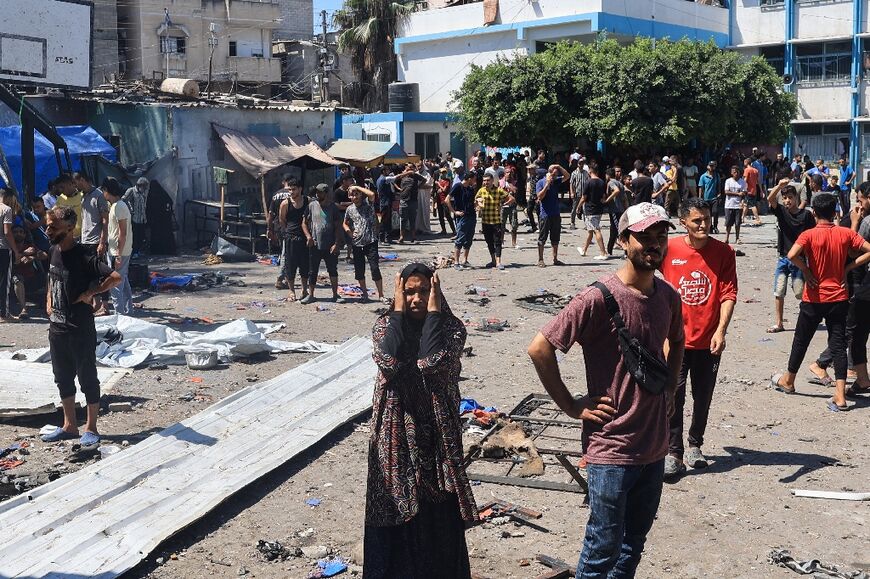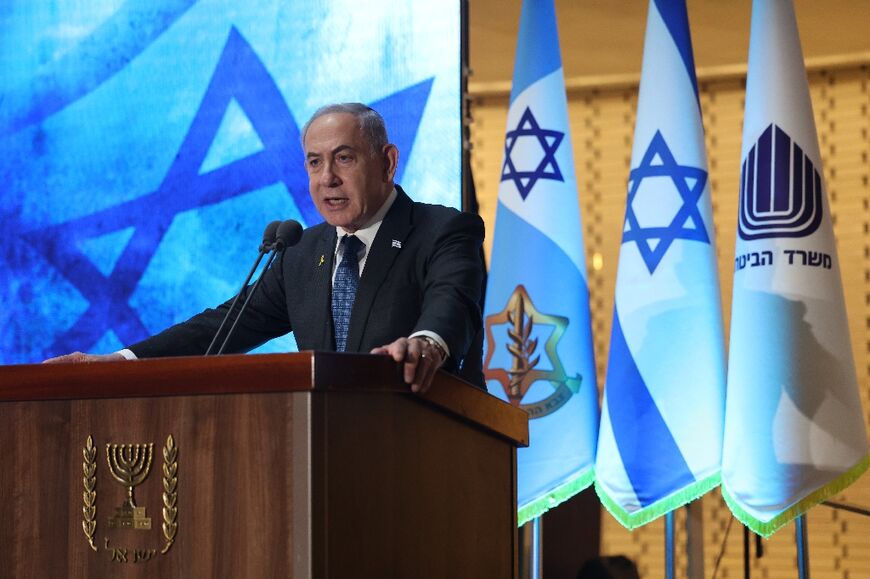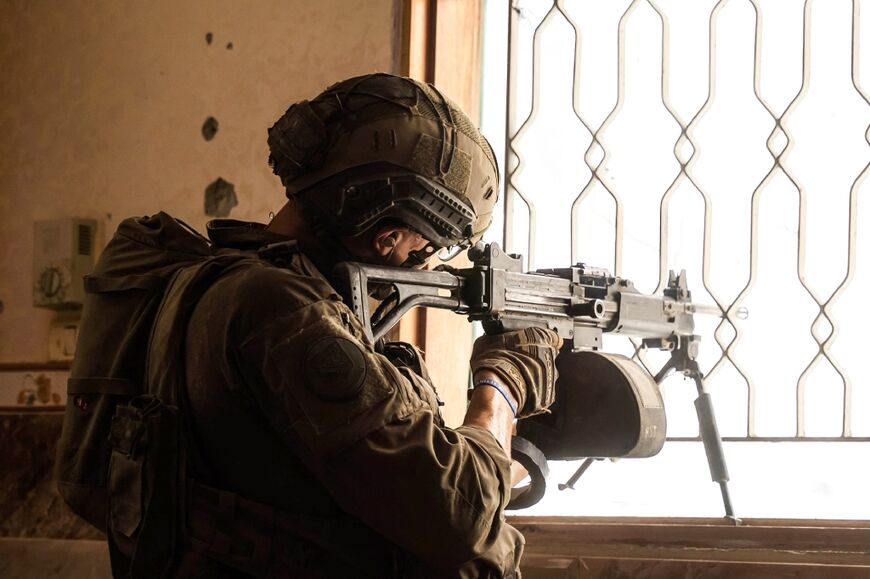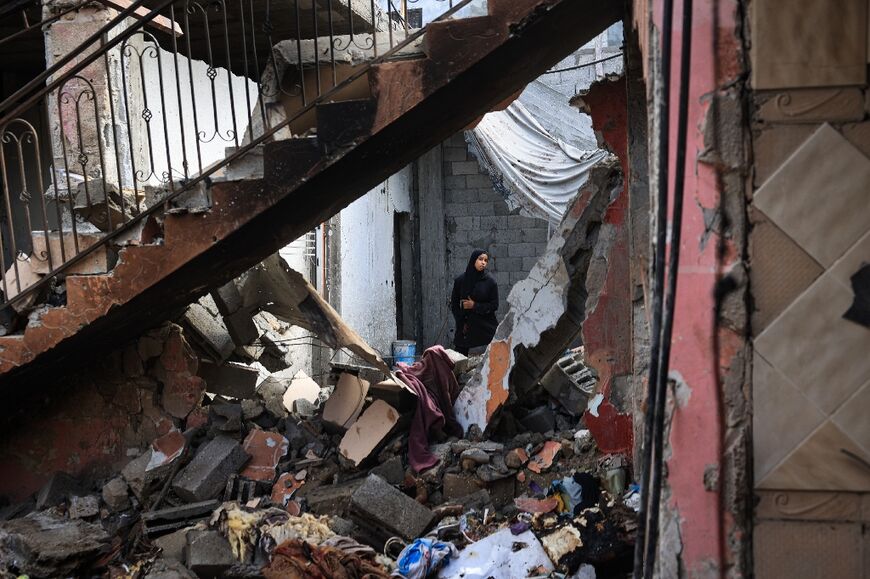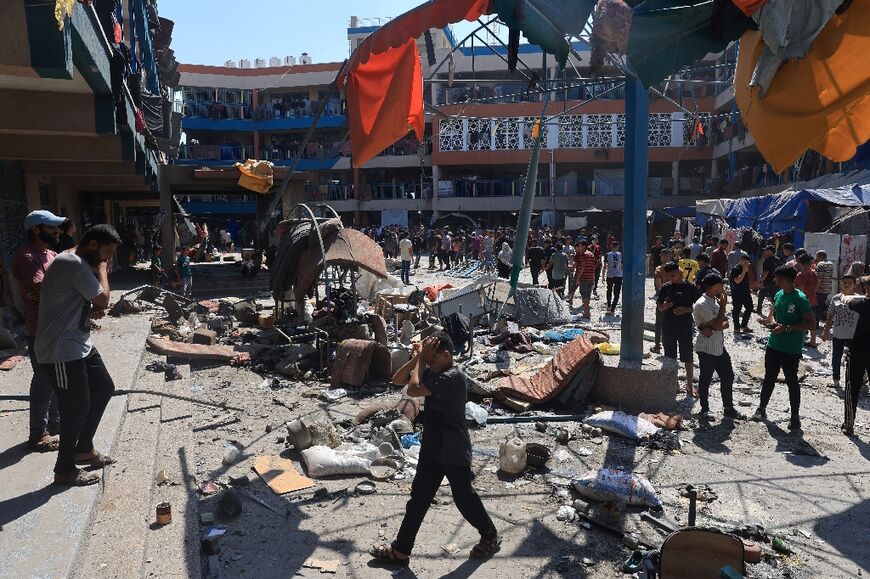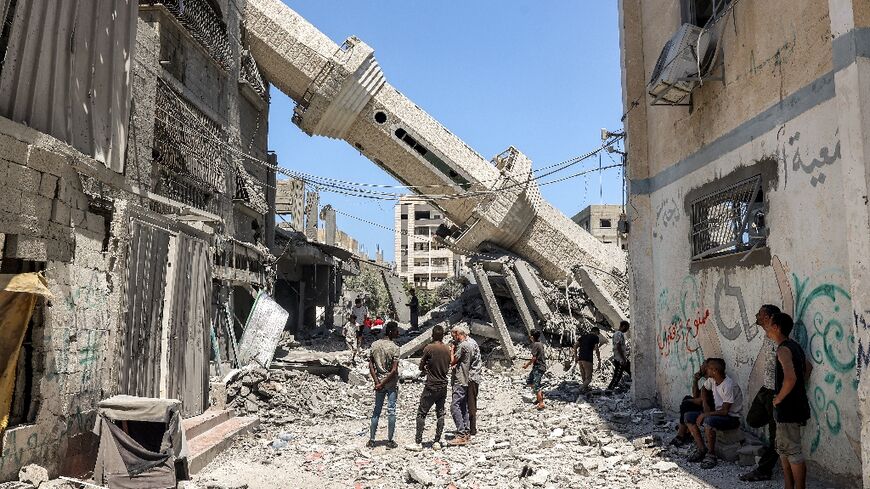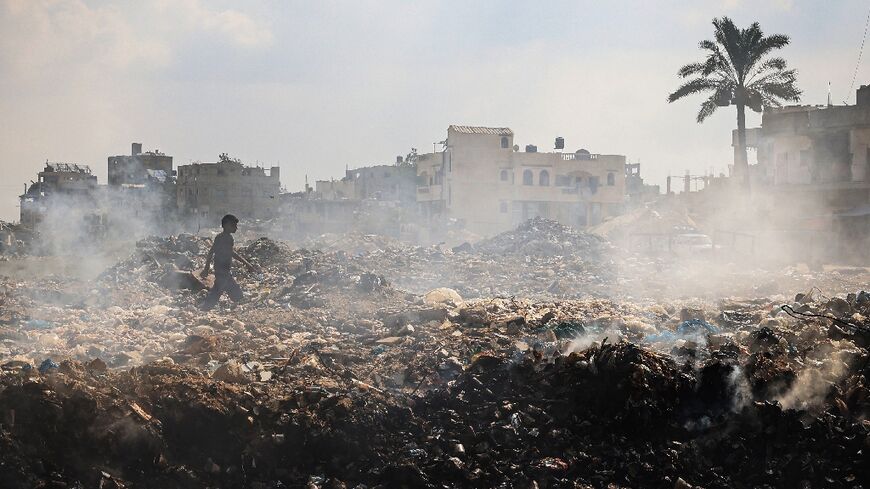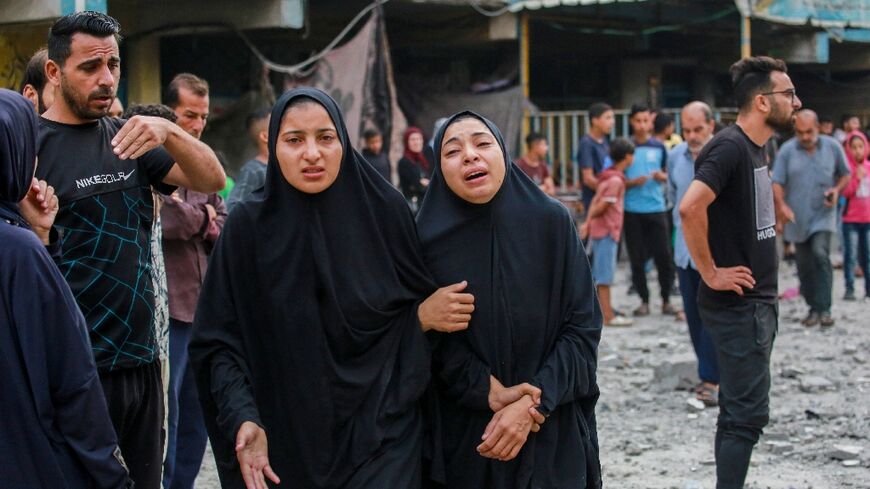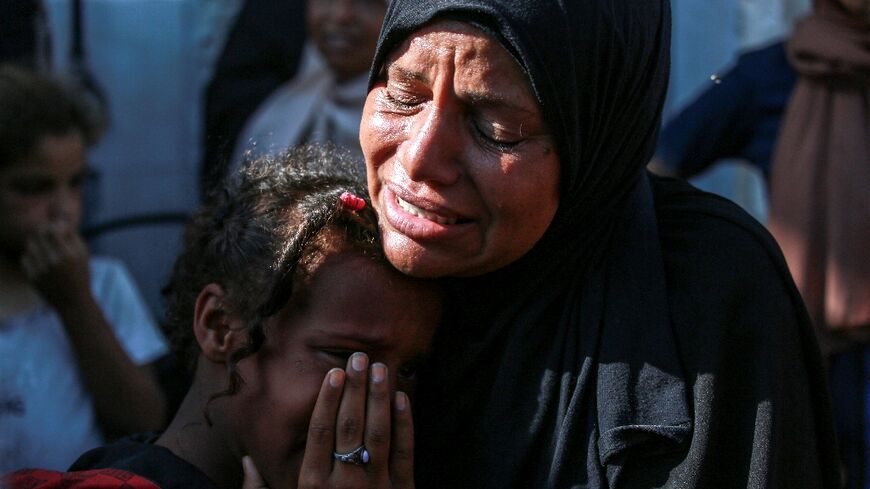Israel bombs Gaza after US criticises high civilian toll
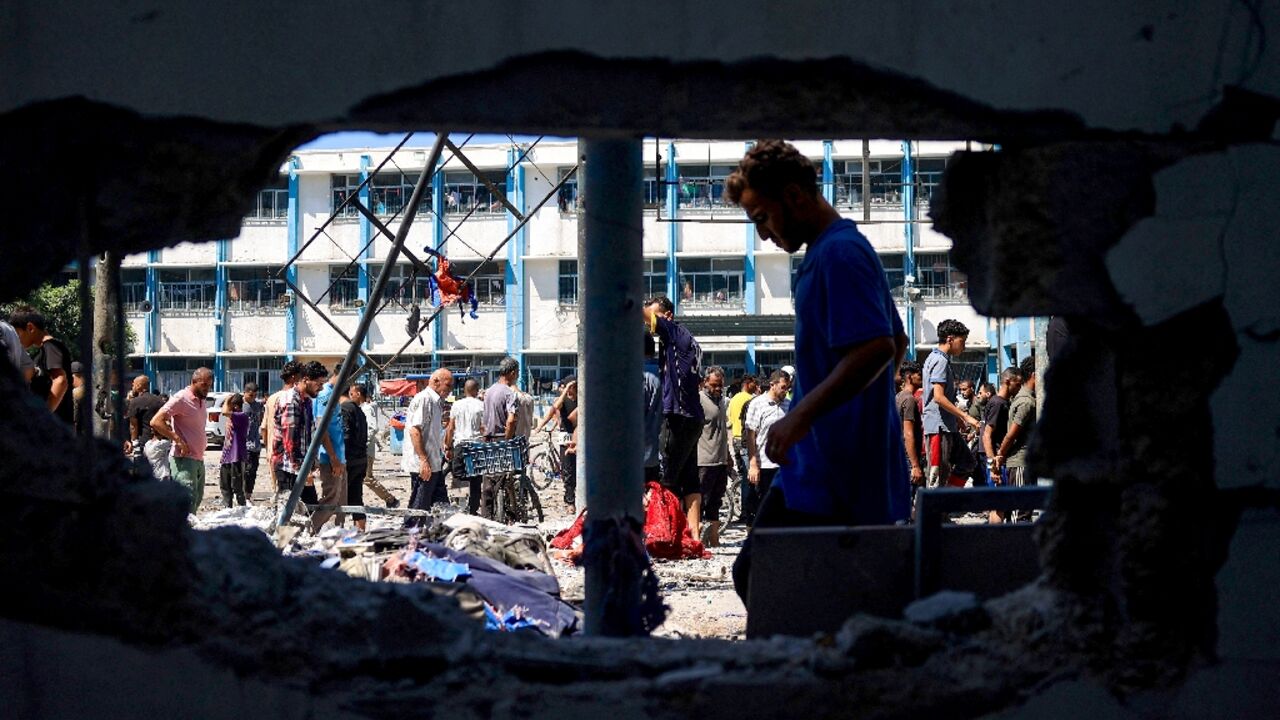
Authorities in Hamas-run Gaza said dozens of Palestinians were killed Tuesday in three separate strikes, as Israel pounded the territory despite renewed US criticism of the high civilian toll.
Gaza civil defence spokesman Mahmud Bassal said the three air strikes killed at least 44 people and wounded dozens within an hour across the war-torn Palestinian territory. Israel confirmed it carried out two of the strikes.
The health ministry said a strike on a fuel station in Al-Mawasi in southern Gaza killed 17 people, and the Palestinian Red Crescent said a separate strike at almost simultaneously hit the UN-run Al-Razi School in the Nuseirat refugee camp in central Gaza, killing five people.
The civil defence agency said the third strike was on a gathering of people near a roundabout in northern Gaza, but did not provide a breakdown of casualties.
US Secretary of State Antony Blinken earlier conveyed Washington's "serious concern" to two senior Israeli officials regarding deadly Israeli strikes in Gaza, his spokesman said.
"We have seen civilian casualties come down from the high points of the conflict... but they still remain unacceptably high," spokesman Matthew Miller said after Blinken met Strategic Affairs Minister Ron Dermer and National Security Adviser Tzachi Hanegbi.
Washington has been pushing for a truce between Israel and Hamas.
A senior Hamas official said Sunday the group was pulling out of indirect talks for a deal in protest at Israeli "massacres", including a major strike that Gaza's health ministry said killed at least 92 people on that day.
Hamas was ready to return to the indirect talks once Israel "demonstrates seriousness in reaching a ceasefire agreement and a prisoner exchange deal", he said.
On Tuesday, Israeli Prime Minister Benjamin Netanyahu vowed to ramp up pressure on Hamas.
"This is exactly the time to increase the pressure even more, to bring home all the hostages -– the living and the dead –- and to achieve all the war objectives," he said.
- Prisoner abuse allegations -
Israel's military said aircraft struck about "40 terror targets" in Gaza, including "sniping posts, observation posts, Hamas military structures, terror infrastructure, and buildings rigged with explosives".
It said troops were continuing targeted raids in the southern city of Rafah and in central Gaza.
The UN humanitarian office OCHA said multiple strikes across Gaza on Tuesday killed and wounded dozens.
The war began with Hamas's unprecedented October 7 attack on Israel which resulted in the deaths of 1,195 people, mostly civilians, according to an AFP tally based on Israeli figures.
The militants also seized 251 hostages, 116 of whom are still in Gaza including 42 the Israeli military says are dead.
Israel responded with a military offensive that has killed at least 38,713 people, also mostly civilians, according to figures from the Gaza health ministry.
Israel's military has also detained scores of Gazans, who have made allegations of torture, rape and other abuses in custody that Israeli authorities have denied.
Palestinian lawyer Khaled Mahajna said Monday that prisoners had recounted guards using "electric prods" on inmates.
In one prisoner's case, a "fire extinguisher tube was inserted into his buttocks and the fire extinguisher was turned on," Mahajna said after visiting detained Palestinian journalists.
- Mass displacement -
Indirect talks on ending the devastating war have been brokered by Qatar and Egypt, with US support, but months of negotiations have failed to bring a breakthrough.
At the end of May, US President Joe Biden outlined a ceasefire roadmap he said had been drawn up by Israel that triggered an intensification of the talks.
But despite meetings in both Cairo and Doha, there has been no sign of progress on how this might be implemented.
Critics in Israel, including tens of thousands of demonstrators demanding a deal to bring home the hostages, have accused Netanyahu of prolonging the war.
The conflict has forced 90 percent of Gaza's 2.4 million people to flee their homes. Many have sought refuge in UN-run schools, seven of which have been hit by Israeli strikes since July 6.
"Why do they target us when we are innocent people?" asked Umm Mohammed al-Hasanat, sheltering with her family at a UN-run school in Nuseirat, which was among those hit.
"We do not carry weapons but are just sitting and trying to find safety for ourselves and our children."
The war has also sparked near-daily exchanges of fire between Israeli forces and Lebanon's Iran-backed Hezbollah movement, which says it is acting in support of Hamas.
Lebanese official media said Israeli strikes Tuesday on southern Lebanon killed five people, including three Syrian children, with Hezbollah announcing rocket fire at Israel in retaliation.
Meanwhile near Tel Aviv ultra-orthodox Jewish protesters fought police, hours after the Israeli military said it would begin issuing draft notices for men in the community from Sunday.
Historically exempt from compulsory military service, ultra-Orthodox seminary students are being called up as the Gaza war and potential conflict with Hezbollah sap resources and fuel resentment against those who do not have to serve.


